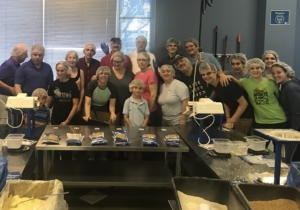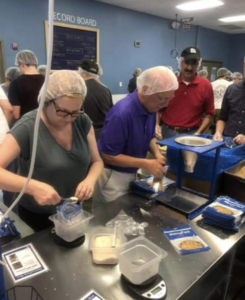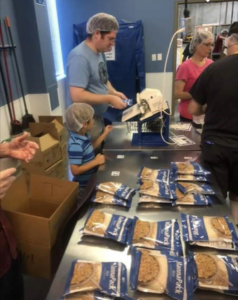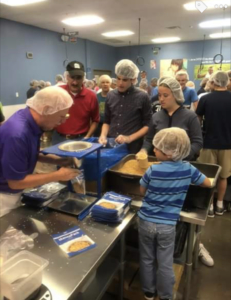Feed My Starving Children
Feed My Starving Children was a huge success for the Kehillah. Twenty-one members of Kehillat Chaverim volunteered their time to pack meals for the organization. We gathered at their Richardson location, listened to a brief orientation and set of instructions, donned our hairnets, washed our hands, and started packing meals for El Salvador.
Some people scooped components of the MannaPackTM meals, while others made certain the bags met the weight range before being sealed and packed into boxes. Each time we finished filling a box of meals, our team cheered loudly. Several other groups were also donating their time that night and we all had fun packing while listening to music and also competing with other tables. At the end of the evening, all participants had completed packing 88 boxes which equates to 19,008 meals that will feed 52 kids for a year. Bravo Kehillat Chaverim !!




